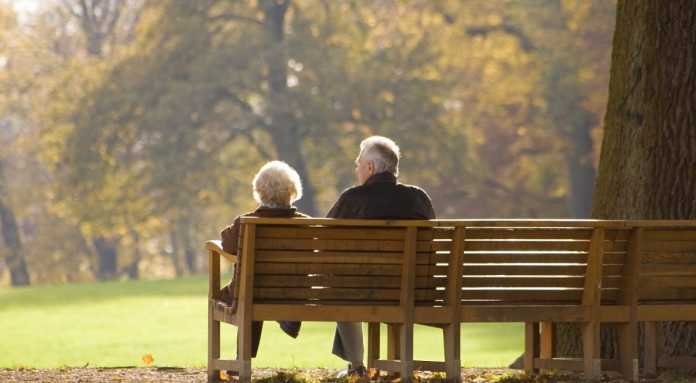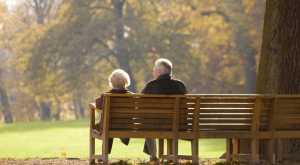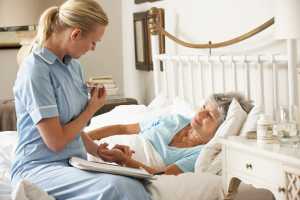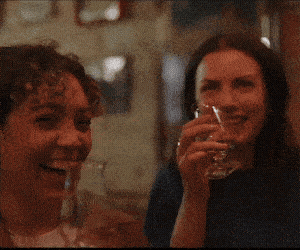
The Final Act
Where once I was the child, now I am the parent.
Or at least that’s how it feels.
Now I’m the one doing the scolding, the one tut-tutting, the one monitoring the alcohol intake and hiding the cookie jar. I’m the provider of information, the protector, the large, looming presence which keeps predators away. Where once I was the helpless infant, the troublesome teen, the lethargic twentysomething, the giver of sleepless nights, taker of money and sweets, I am now, suddenly, shockingly, the responsible one, the boss.
My mother’s not that old and I, for all my claims, am not that responsible. Yet the dynamic has changed. She may argue her case, try to deny the indisputable truth, but we both know who’s in charge here – and it’s not the woman who spent all of Paddy’s Day in the pub and slunk home sometime after midnight.
I know I’m not the first to experience this phenomenon; virtually every son or daughter assumes command of the people who brought them into the world at some point. But whereas in some cases, like mine, it’s a seamless transition with both parties slipping comfortably into their new roles, in others it’s a situation forced upon them, and one that neither are fully prepared for.
At around the same time that I realised I could give out to my mother and send her to her room, it dawned on me that this omnipresent figure, this person who had always been there for me, would not be around forever. One day, not only would I be the one in charge, I would also have to tend to her, care for her, look after her just as she did me.
Again, I should state that my mother’s not that old and, given the longevity of women in our family, has probably got another forty years in her. But still I worry. I worry that when the time comes I won’t be able to afford the kind of care she deserves, I won’t be able to repay her and fulfil my duty as her son. And I worry that when she dies she will do so in a remote environment, in a bleak, desolate room, surrounded by strangers, all destined to suffer the same fate.

That humans are living longer these days is undoubtedly a good thing, and that Ireland is prosperous enough to have one of the highest life-expectancies in the world is even better. But, as we’ve seen with the crises in our hospitals, schools and other facets of the public sector, when it comes to the planning for the future, we do not have a good track record.
According to Paul Kimmage, sports journalist and campaigner for the Nurse for Night Care Service, three out of four Irish people would prefer to die at home, but, due to an already overworked service, just one out of four actually do so. The Nurse for Night Care Service is an independently run, charity organisation which provides palliative care for those unable to pay for a private service and those unwilling to spend their last days in the mayhem of their local hospital.
The cost of running this charity is currently €800,000 per year, but even that only helps cater for a fraction of those in need. Those who can’t avail of this service must submit themselves to the whims of the HSE. From there, they may end up in one of nine specialist hospices (three of which are in Dublin) for the terminally ill or, failing that, in a general hospital, tended to by its own team of nurses and doctors.
To you or I that might not sound all that bad; a nice, friendly environment, somewhere peaceful to see out your days and breathe your last. But if you’ve ever spent a few nights in a hospital anywhere in this country, you’ll know it’s not all that rosy. Again, not to besmirch those who work within our health services, but the one thing running through the minds of every patient in every ward in every one of our hospitals is: “When can I go home?”
Imagine lying in one of those beds, with those uncomfortable blankets and those intrusive neighbours, knowing that you’re never going home? That this is to be your final port of call, the last undignified stop on a journey that had promised so much more?

We’ve already seen the maddening impact of ‘kick the can down the road’ politics in this country, the contemptible passing of the buck from one Government to the next which has led to the current incumbents being unable to provide the most basic of services to its citizens.
We’ve seen how young people, children, the future of this country, are treated, how they’re left to suffer on waiting lists, their conditions deteriorating on a daily basis, and how our schools, overcrowded and understaffed, struggle to cope with the influx of bright, inquisitive, eager-to-learn minds that are sent their way every September.
If that’s how we look after our children what hope is there for our aged?
Do you think there’s a politician, a councillor in this country, who’s got a structured plan to help deal with this impending disaster? Of course there isn’t. They’re too busy dousing the current fires, trying to avert disasters that have already happened and long since departed.
Because that’s how we do things here; instead of identifying a problem and addressing it promptly, we wait for something to break and then we try and fix it. We leave things to fester and rot knowing that, when the shit hits the fan, it’ll be someone else taking the blame, someone else having to rummage around the toolbox.
But when those at the helm grow old, when those governors, leaders and legends start the last lap of their storied, illustrious lives, they won’t need to avail of any crummy public services, they won’t have to rely on charity organisations to attach their catheters or mop their brow. Because they’ll be getting the best of care, in the comfort of their own home, or in an expensive residential centre, whichever they prefer, a fitting finale to a life well spent.
Happy Mother’s Day everyone.
Smile like you mean it

Anyway, while we were busy crying into our coffee and wondering how those strands of green dye got into our hair, the UN released this year’s World Happiness Report which lists the most cheerful countries on the planet based on social and economic factors.
With a happiness rating of just under seven out of ten, Ireland came fifteenth on a list topped by Norway. Denmark and Iceland rounded out the top three, with the US one place ahead of us in fourteenth and the UK a few behind in nineteenth.
For a start, I think that seven out of ten average is slightly optimistic. Yeah, we were all probably eights and nines, maybe even tens, in the pub on Paddy’s Day, but on an ordinary, run-of-the-mill day an Irish person is a five, or a six at a stretch. If you’re regularly a seven or higher then you’re seen as being a bit weird, a bit full-on, someone not to be trusted.
And fifteenth happiest nation in the world? I don’t think so. We like to let on we’re happy, play up to the stereotype so everyone thinks we’re lovely, but deep down we know the truth. You could triple our wages, build a hundred new schools and a thousand new hospitals and we’d still complain, we’d still be a miserable shower. Because it’s in our DNA, and no report, from the UN or otherwise, can change that.



